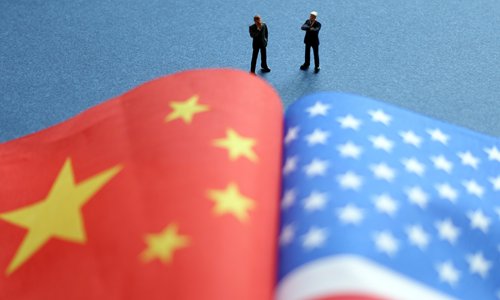
More than 100 Americans recently published an open letter addressed to US President Donald Trump, calling on the US government to adhere to a tough policy against China. Earlier in July, over 100 US experts signed an open letter addressed to Trump and members of the Congress titled “China is not an enemy.”
The previous open letter was drafted mainly by Ezra Vogel, a professor emeritus at Harvard University who has long studied China. The second letter was written by retired Navy Captain James E. Fanell, a former director of Intelligence and Information Operations for the US Pacific Fleet. Among the signatories of the second letter are veterans and former US intelligence officials, think tank members, and a few individuals who have been arguing for years that China is about to collapse. It can be argued that the group which signed the second letter can be called a “miscellaneous troop.”
The “miscellaneous troop” articulated that China is not and will not change as the US wishes it to be and called on Trump “to stay the course on your path of countering Communist China.”
The messages emanating from both letters are that there is still no consensus on how the US should respond to China’s rise.
The two letters have something in common – the US wants to shape China and hopes for the changes that it expects from the country. The letter by Fanell said with conviction that “China is not as we wish it to be.”
That’s why the signatories are calling on Washington to stick to a tough US policy on China. The signatories to the first letter by Vogel arguably followed the logic – If you regard China as an enemy, China will definitely become your enemy. In today’s public opinion milieu in the US, these two views as a whole have pivoted toward a hard-line approach.
Since the US adjusted its relations with China in response to the September 11 attacks 18 years ago, major changes have taken place in its strategic positioning of China. The original policy of containment and engagement has been set aside to lean more and more to vigilance and containment.
Given divergent public opinions in China and the US, we should not have much expectation for the effects the first open letter can have on Washington’s China policy. Likewise, it is unnecessary to worry that the “miscellaneous troop” can take center stage to dominate Washington’s policy toward Beijing.
In fact, China and the US are not destined to be friends or foes. Times have changed. China is not the former Soviet Union. The US is no longer what it was.
It must be clear to the US that it is not impossible for it to influence China. But China’s national path has been shaped by its unique history and reality. It played a decisive role in building a better life for the Chinese people. If the US wants to reshape China’s development path through engagement, it is out of the question. The realignment of China’s national approach will only be achieved in accordance with the interests and practical needs of the Chinese people.
How big countries with different political systems should get along is the most pressing international political proposition in the 21st century.
It requires a joint answer from China and the US, which is clearly leading the way. We hope it is not the “miscellaneous troop” which is always making waves. The US needs politicians and academics with a broader strategic vision and greater insight and responsibility.
The article is an editorial of the Global Times. opinion@globaltimes.com.cn

Leave a Reply
You must be logged in to post a comment.